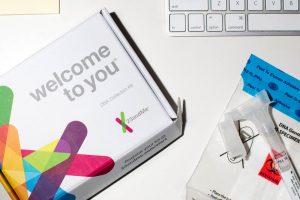In light of declining sales, DNA testing unicorn 23andMe has announced it's laying off about 100 workers, or 14% of its total workforce. A spokesperson for the company confirmed that 23andMe is "restructuring" its consumer business. This signals a potential shift towards drug development based on genetic data collected from its ancestry tests.
Sales of consumer DNA tests flourished in 2017 after the Food And Drug Administration (FDA) approved 23andMe's genetic tests. The MIT Technology Review estimates more than 26 million people have taken an in-home ancestry test. So why the sudden slump? CEO Anne Wojcicki speculated that privacy concerns could be the reason.
In 2018, the case of the Golden State Killer was solved using online DNA databases. By combing through family trees, using results from tests like 23andMe (the company denied any involvement with the case), former police officer, Joseph James DeAngelo was finally arrested for the death of a dozen murders and over 50 rapes committed between 1978 and 1986.
His capture was a win for law enforcement but sparked concerns about data privacy, making many apprehensive about sensitive genetic information falling into the wrong hands. Last December, the Pentagon advised military members to avoid DNA kits, due to security concerns that could risk military missions. This coincided with a report from Recode, which highlighted a variety of privacy issues that consumer DNA tests raise. The story detailed how law enforcement, life insurance companies, advertisers, and even international terrorist organizations could wield people’s data.
According to reports from CNBC, the company has hired a new security officer to focus on consumer privacy.
Wojcicki also cited that fears of a looming U.S. recession may have also led consumers to cut down on unnecessary expenses, making their DNA tests a luxury item best left on the shelf.
This isn’t just an issue facing 23andMe but the entire consumer genetic testing industry. Veritas Genetics closed its doors in late 2019. Last year, Illumina also witnessed a drop in demand for its DNA sequencing machines. While Ancestry, the largest seller of at-home DNA tests for health and genealogy reports, just announced that it’s laying off around 100 people as well, which comes to 6% of its total workforce for similar reasons.























